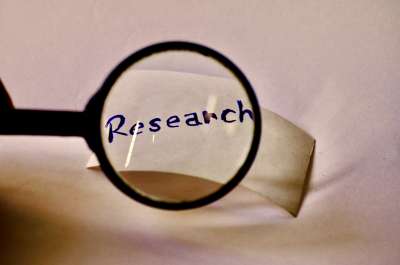Our Work
Self-Advocates in Research
What "nothing about us without us" means for the research community

Increasingly, self-advocates are finding ways to make research more inclusive of persons with intellectual disabilities.
The Harvard Law School Project on Disability (HPOD) is proud to announce a significant gift from the Samuel Family Foundation to support HPOD’s work to create pathways for self-advocates to become more involved in research about issues that affect their lives. This generous gift will enable HPOD to expand its ongoing efforts to elevate self-advocates’ voices in research and scholarly activities, at a time when persons with intellectual and developmental disabilities (IDD) are increasingly becoming involved in research activities both in the United States and abroad.
HPOD’s efforts have contributed to a growing trend towards expanding opportunities for persons with IDD to participate in research, not merely as research subjects but as researchers themselves. Historically, persons with IDD have not only been excluded from research, but exploited by researchers. Increasingly, however, persons with IDD are turning the tables on this legacy of exploitation and becoming actively involved in producing and publishing research on topics that affect their lives. HPOD aims to continue to contribute to this welcome trend with the Samuel Family Foundation’s support by working with self-advocacy organizations to ensure the spirit of “nothing about us without us” permeates the field of research.
Since 2017, HPOD has supported Massachusetts Advocates Standing Strong’s (MASS) Supported Decision-Making Task Force to study laws and policies from the United States and abroad, to research the decision-making barriers their members face, to gather their members’ perspectives on measures that address these barriers, and to field test easy read resources for forming supported decision-making agreements. As a result of these self-advocate-led efforts, this year MASS launched a peer-to-peer program to assist interested self-advocates to develop their own supported decision-making agreements. This month, MASS’ peer guides concluded a structured, months-long process that helped a self-advocate to create her own agreement.
Last summer, HPOD deepened these activities with MASS to support Chester Finn as the Samuel Centre for Social Connectedness’s first self-advocate summer research fellow to research the efficacy of the MASS Task Force’s supported decision-making agreement tools. In the course of Chester’s fellowship, HPOD developed resources to help train self-advocates on research, such as a plain language version of the 1979 Belmont Report on human subjects research. Chester’s reflections are both captured in his easy read resource to help self-advocates to guide their peers through the process of creating their own agreements, his report for the Samuel Centre, and also in his co-authored essay published in Current History.
Critical to HPOD’s expanding self-advocates’ role in research, Anne Fracht has recently joined HPOD as Self-Advocacy Associate. In this role, she will provide critical support, guiding, and mentoring to self-advocates engaged in research, as well as continue to strengthen the work of the MASS Supported Decision-Making Task Force. Fracht will augment HPOD’s capacity to support self-advocates to play more prominent roles in generating knowledge about people with IDD and to use their research to strengthen their advocacy efforts.



